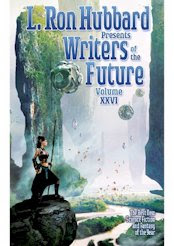 My story recommendation of the week is for David Hollander's "The Limits of Bioinformatics and the Problematic of Meaninglessness: A Case Study," from Issue #2 of Cousin Corinne's Reminder.
My story recommendation of the week is for David Hollander's "The Limits of Bioinformatics and the Problematic of Meaninglessness: A Case Study," from Issue #2 of Cousin Corinne's Reminder.Cousin Corinne's Reminder is a mainstream literary magazine, but it also includes comics and photography, and if Hollander's story is any indication it is open to genre work. David Hollander, author of the book L.I.E. and various short fiction, is a mainstream writer who has occasionally flirted with genre. In particular, his story "The Naming of the Islands" from McSweeney's was reprinted in Best American Fantasy: 2008, edited by Ann and Jeff VanderMeer.
"The Limits of Bioinformatics" is unqestionably either science fiction or fantasy, depending on whether you deem its protagonist an alien or an angel. The unnamed protagonist (toward the end he is designated "TK421," a little Star Wars in-joke) arrives on Earth with a "time fractalizer," which allows him to live many years in a single day of his life span. Armed with a healthy supply of Wellbutrin, he is assigned "Experience Project 23DX9: The Problematic of Meaninglessness."
With each years-long day, the protagonist tries a new approach to the problem of meaninglessness. Monday he explores sex and love, marrying a woman named Penelope and living with her until exposure to him kills her. Tuesday he tries physics, Wednesday religion, Thursday art, and so on. Of course, he finds no easy answers.
The story is a nice framework for Hollander's philosophical exploration of what gives life meaning. It begins from a very cynical viewpoint. For instance, Penelope builds her life around a partner whom we know for a total fraud:
Penelope knew only his Mission Identity, and not the dynamic and multifaceted Explorer he truly was, and so what she loved was not him and what he was she could never love. This, he realized, was not particular to his case.But later in the story, as the narrator struggles to find any other source of meaning, he looks back fondly on his faux-marriage, and the cynicism starts to melt away.
I was initially annoyed at Hollander's overtly tongue-in-cheek approach to his fantastic material, as if assuring mainstream readers that he doesn't really go in for that sci-fi stuff, but he won me over with his clever writing and his thought-provoking philosophical ideas. Genre and mainstream readers alike should find much to enjoy and to think about in "The Limits of Bioinformatics."







